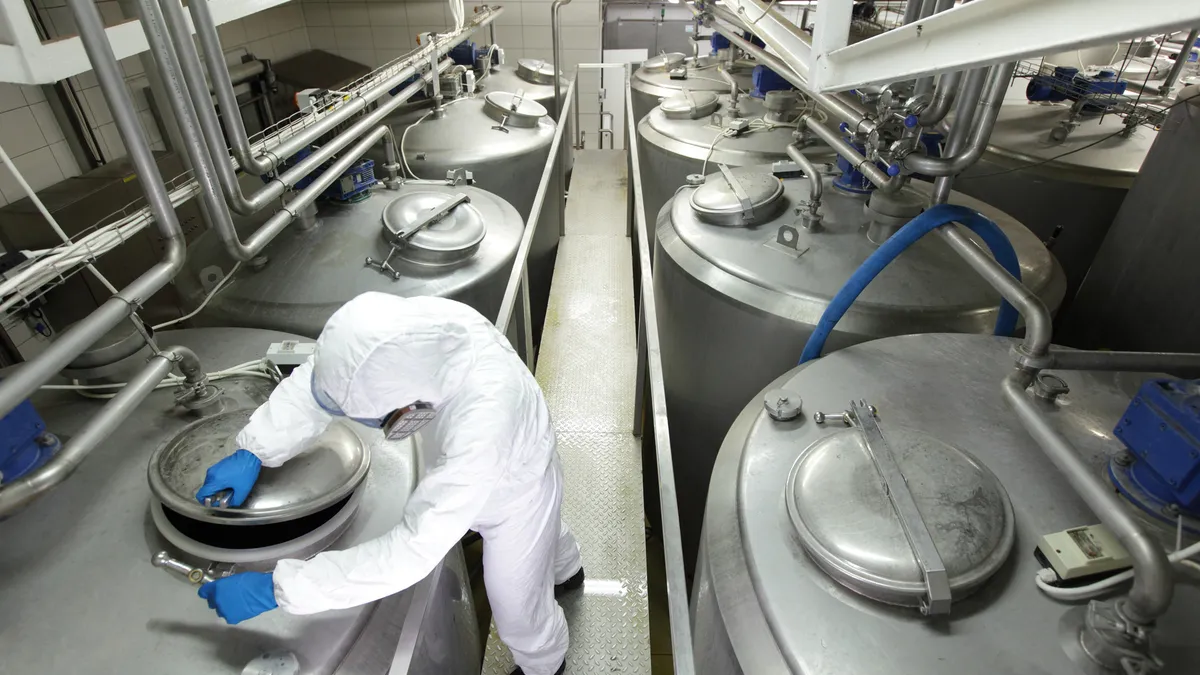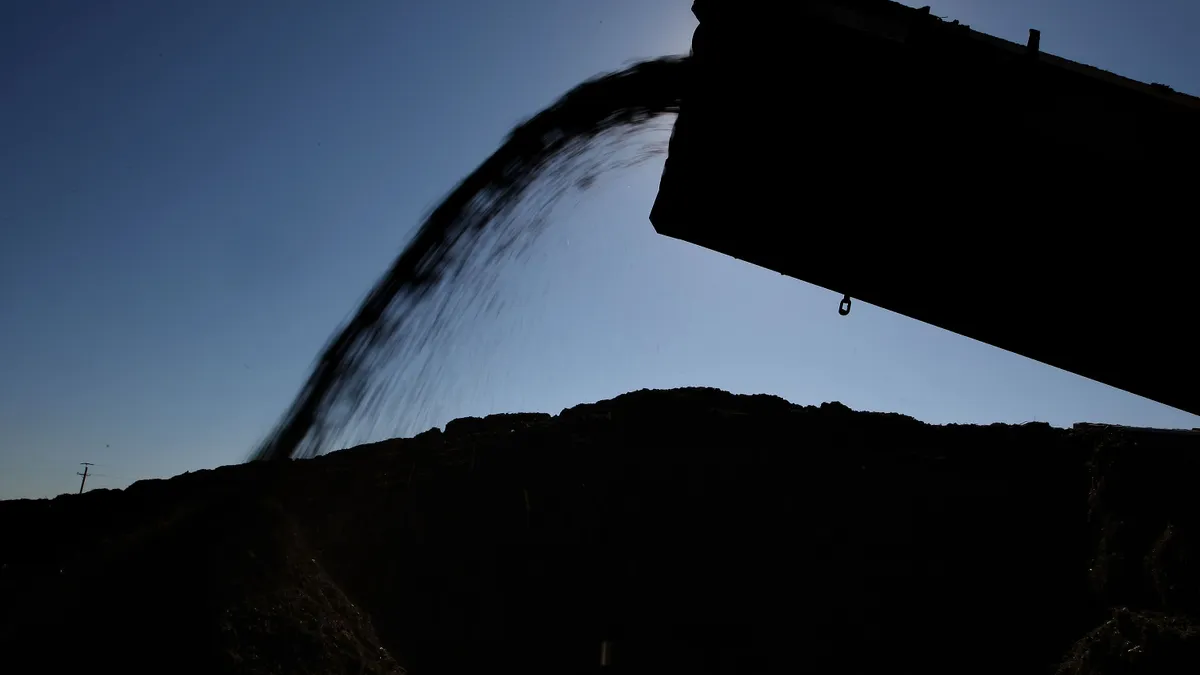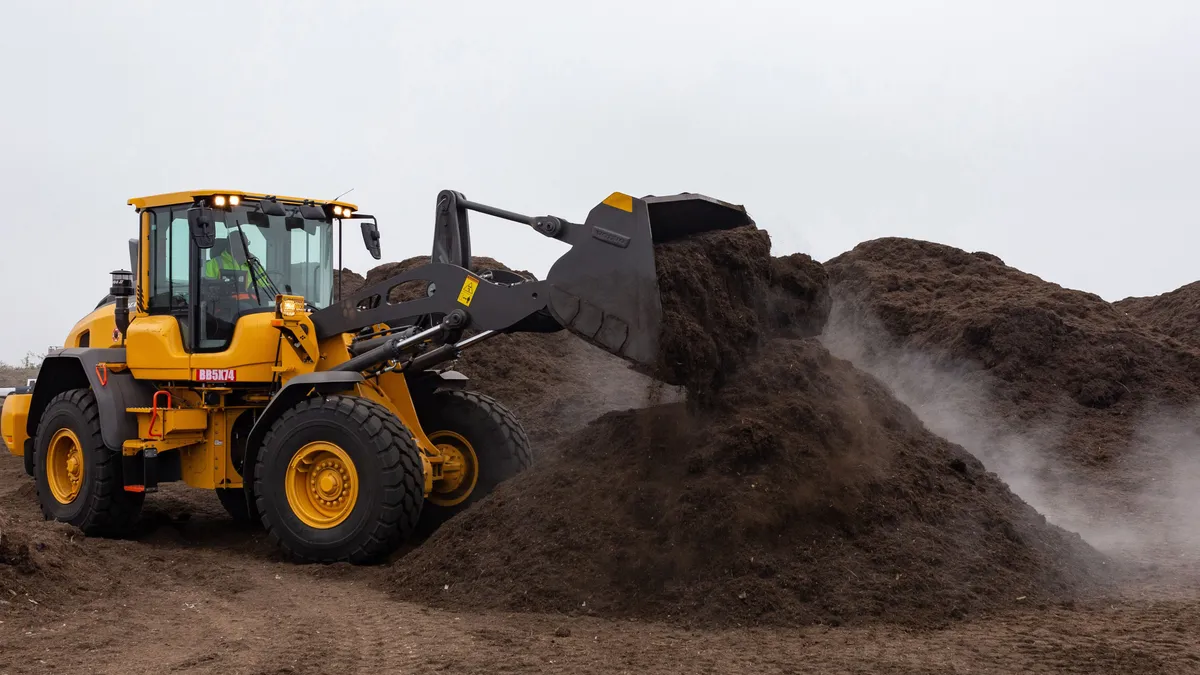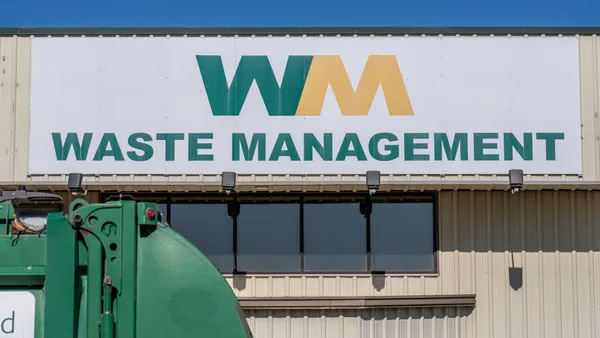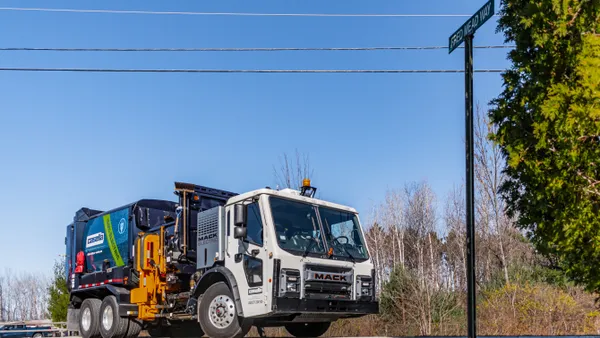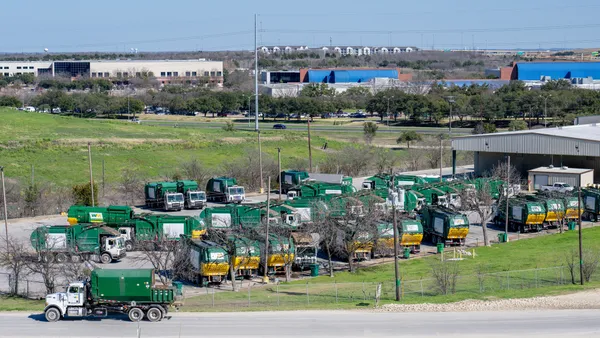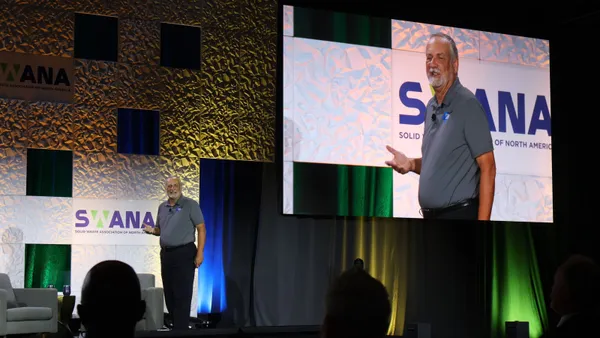Dive Brief:
- Tempe, AZ, is collaborating with Arizona State University (ASU) to determine the types of food waste produced in the city. Their efforts could lessen the amount of waste being dumped in landfills.
- The data will be used to gauge the amount of energy those particular materials may produce and could help shape potential plans for a renewable energy facility.
- The study will test the volume of biogas the food waste creates, and whether its an economic advantage for the city to build an anaerobic digestion facility in the future.
Dive Insight:
If the project does move forward, the city is considering using the gas collected as compressed natural gas (CNG). Another use is that biogas could be used as a heating fuel or to generate electricity. Mike Dalrymple, the Senior Sustainability Scientist at ASU’s Walton Sustainability Solutions Initiatives said that there is also the potential of generating revenue by selling carbon credits.


